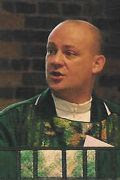Proofs of God and Their refutation
William Lane Craig has a short essay on the Fox News blog that it getting a lot of attention from the atheist blogosphere--which is not surprising since the essay is entitle "A Christmas gift for atheists -- five reasons why God exists.
I personally find these proofs of God a fools errand. We are kidding ourselves if we think we can "prove" that God exists. At best, we can come up with reasons for why our faith is reasonable and consistent with existing scientific evidence. If we are honest, however, we must admit that for each of our asserted reasons for belief there may well be a materialistic explanation that does not depend on a supernatural being. For example, humans do seem "hard wired" with some moral sense that transcends cultural differences, but this may well be the result of natural selection for this trait. As a social animal, humans with an altruistic sense were more likely to survive.
As a result, each time I see Christian apologists attempt to articulate "proofs" of good, they get eviscerated by atheists who rightly point out alternative explanations other than God (or in some instances point out that the author doesn't understand the science). Here is a good example from Jason Rosenhouse's blog:
Read it all here. Jerry Coynes (here) also have responses that are worth reading,.
What do you think?
I personally find these proofs of God a fools errand. We are kidding ourselves if we think we can "prove" that God exists. At best, we can come up with reasons for why our faith is reasonable and consistent with existing scientific evidence. If we are honest, however, we must admit that for each of our asserted reasons for belief there may well be a materialistic explanation that does not depend on a supernatural being. For example, humans do seem "hard wired" with some moral sense that transcends cultural differences, but this may well be the result of natural selection for this trait. As a social animal, humans with an altruistic sense were more likely to survive.
As a result, each time I see Christian apologists attempt to articulate "proofs" of good, they get eviscerated by atheists who rightly point out alternative explanations other than God (or in some instances point out that the author doesn't understand the science). Here is a good example from Jason Rosenhouse's blog:
1. God provides the best explanation of the origin of the universe. Given the scientific evidence we have about our universe and its origins, and bolstered by arguments presented by philosophers for centuries, it is highly probable that the universe had an absolute beginning. Since the universe, like everything else, could not have merely popped into being without a cause, there must exist a transcendent reality beyond time and space that brought the universe into existence. This entity must therefore be enormously powerful. Only a transcendent, unembodied mind suitably fits that description.
This is all very muddled. Here are some words and phrases in that argument that need some serious clarification before we can make sense of what Craig is even claiming: “our universe”, “absolute beginning”, “cause”, “transcendent reality” and “beyond time and space.”
Science tells us that our universe came into being with a massive explosion called the Big Bang. It tells us almost nothing about what might have caused the Big Bang to occur. For that matter, since our notions of time and space also came into existence with the Big Bang, it is not so clear what it even means to talk about a cause for the universe. In our normal understanding of the terms, causes must come before effects. For that to be meaningful, you must have a notion of time with which to work.
It is one thing to say that our little corner of the universe had a beginning with the Big Bang, but we have little basis at all even for speculating about what might have come before. In some of his public presentations, Craig abuses a theorem due to Borde, Guth and Vilenkin regarding the origins of the universe to add a scientific gloss to his assertions, but he is simply wrong to do so.There is no shortage of viable explanations for the origins of the cosmos that do not involve inventing an all-powerful deity to start it all off. There is no reason at all why there could not be an infinite regress of causes, nor is there any reason to think the universe could not have appeared uncaused. We have little basis even for speculating about what is plausible and what is not in pondering these scenarios. Whatever it was that brought our world into being is something that is not at all like anything with which we have actual experience. How can we judge the relative likelihoods of such naturalistic scenarios, as compared to the likelihood that there is a necessarily existent superbeing who can effortlessly bring universes into being with acts of his will?
In short, Craig is just making things up when he says that God is the most likely explanation for the existence of the universe. He has no solid basis at all for making such a claim.
Read it all here. Jerry Coynes (here) also have responses that are worth reading,.
What do you think?


Comments